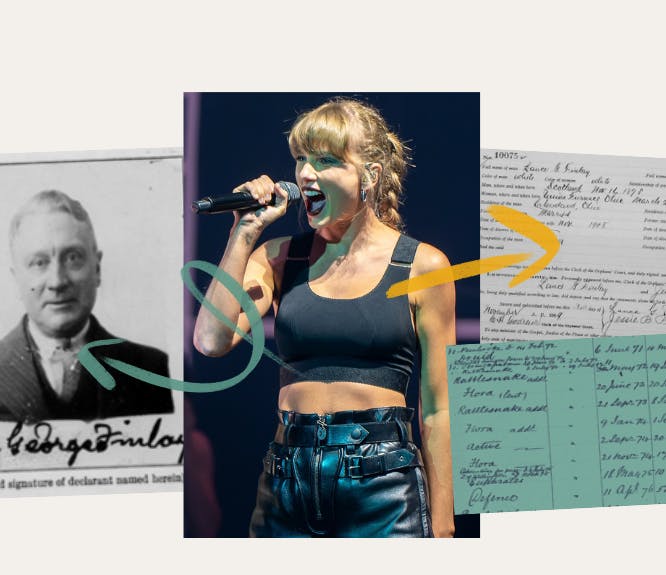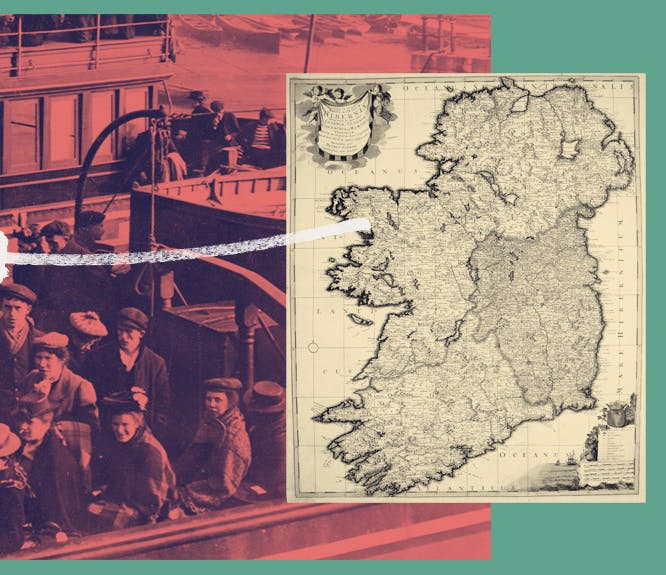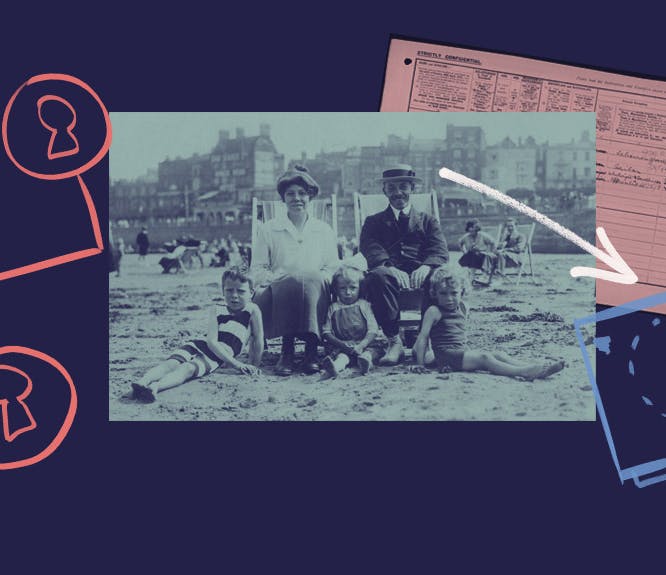8 Expert Tips for Using Irish Records to Build Your Family Tree
3-4 minute read
By The Findmypast Team | March 21, 2016

We had a fantastic turnout for our "Tips & tricks for searching the largest online collection of Irish Parish Records" webinar by our in-house Irish family history expert, Brian Donovan.
For those of you who missed it, don't fret. The webinar is now available on YouTube for you to watch at your leisure:
Brian has also answered some of your excellent burning questions from our Q&A afterwards...
Tracing Irish family history can be difficult, so to ensure you have the best chance of success you will need as much information as possible about your immigrant ancestors before approaching the Irish records. You need to know their name(s), their date of birth in Ireland, the names of siblings and/or parents, and most importantly where they came from.
What you are trying to do is have enough information to distinguish between people of the same name in the Irish records. This information can be found in records from the country your ancestors migrated to. For example, in the USA Census records, Naturalisations and newspaper obituaries will often reveal much of what you need to know. And if you can't find your immigrant ancestor in these records, search for their siblings instead.
Download our handy guide to tracing your Irish family history
You need to gather as much precise information as possible about the person you are tracing to have the best chance of success. You need to know their name(s), their date of birth in Ireland, the names of siblings and/or parents, and most importantly where they came from. What you are trying to do is have enough information to distinguish between people of the same name in the Irish records.
Remember: However certain we may be of a date or place there is always the possibility that it will show up slightly differently in the records, such as when a date of baptism is down as a birthdate or a marriage recorded in the adjacent county. Try searching with less information in the search terms, and with name variants ticked and years + or – a few years to make sure you don't miss out on a potential match.
This will depend on which brick wall you have hit! You might be searching at an early time frame where records are sparser, or you might be focusing on the wrong sources. Never assume you know the answers to your research before you have carried it out. Just because the family tradition is that your ancestors migrated during the Famine, it doesn't mean they did! Just because they are Catholic in the early 20th century, it doesn't mean they were in the mid-19th century. Also bear in mind that many Irish migrants spoke a different language to those compiling the records, Irish rather than English. So records can be often quite confused.
We've put together a list of things you can try if you're having trouble tracing your Irish ancestors.
There is an assumption about religion in Ireland, that the Irish are either Roman Catholic if they come from the south and Presbyterian if they came from the north (the Scots-Irish). It's a lot more complicated. In the 1841 census 37.5% of the population of Ireland were not Catholic. The majority of these were either Church of Ireland (Episcopalian) or Presbyterian, but there were significant communities of Methodists, Quakers, and many other dissenting protestant faiths scattered around the country.
These communities were overwhelmingly English speaking, generally were more literate, and as a consequence much more capable of taking advantage of employment opportunities in other parts of the British Empire or the USA. As a consequence migration among the protestant Irish was proportionately even higher than among Catholic Irish. At Findmypast we currently have the civil register of marriages back to 1845, which includes all non-Catholic marriages (this was expanded to include Catholic marriages in 1864). Further Church of Ireland records will appear on our site over the coming months.
You need to know their name(s), their date of birth in Ireland, the names of siblings and/or parents, and most importantly where they came from. What you are trying to do is have enough information to distinguish between people of the same name in the Irish records. This information can be found in records from the country your ancestors migrated to. For example, in the USA Census records, Naturalisations and newspaper obituaries will often reveal much of what you need to know. And if you can't find your immigrant ancestor in these records, search for their siblings instead.
We have complete records of all passengers arriving in the USA via the five major ports, New York, Boston, Philadelphia, Baltimore and New Orleans back to 1820 and in some cases earlier. We also have the records of all those passengers who left Ireland or Britain from 1890 onwards. We have a growing number of Naturalisation records for the north-east of the USA too.
Findmypast's Irish Births, Irish Deaths and Irish Marriages are indexes to the Irish civil registration records held at the General Register Office. Civil registration in Ireland became compulsory in 1864. The certificates can be ordered by post for a small fee. Click here to download the order form.
In Ireland we work in partnership with the well-known Irish genealogy company Eneclann who carry out bespoke research for anyone tracing their Irish ancestors. For other research assistance check out the partners section of our web site.
Discover the 5 must-know tips for searching our new Irish Catholic Parish Registers
Related articles recommended for you

Taylor Swift’s family tree shines with love, heartbreak and the triumph of the human spirit
Discoveries

From Ulster to the US: Irish migration patterns and their impact on Irish genealogy
History Hub

Acting genes and wartime ancestors: Here's what we've discovered about the family history of The Great Escaper's cast
Discoveries

